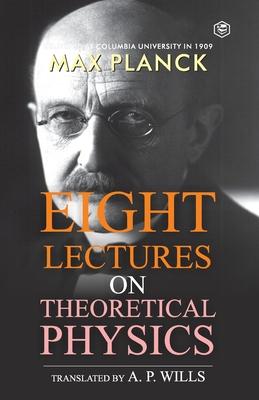Eight Lectures on Theoretical Physics' is the published book of a series of lectures delivered at Columbia University by renowned physicist and Nobel Physics Prize winner Max Planck. These lectures cover the following areas of theoretical physics: Reversibility and irreversibility, Thermodynamic equilibrium in dilute solutions, Atomistic theory of matter, Equation of state of a monatomic gas, Radiation, electrodynamics theory. Statistical theory, Principle of least work and the Principle of relativity.
The first, third, fifth, and sixth lectures present his account of the revolutionary developments occasioned when he first applied the quantum hypothesis to blackbody radiation. The reader is given a valuable opportunity to witness Planck's thought processes both on the level of philosophical principles as well as their application to physical processes on the microscopic and macroscopic scales.
In the second and fourth lectures Planck shows how the new ideas of statistical mechanics transformed the understanding of chemical physics. The seventh lecture discusses the principle of least action, while the final one gives an account of the theory of special relativity, of which Planck had been an early champion.
These lectures are especially important since they reflect Planck's reconsiderations and rethinking of his original discovery of quantum theory. It will be of particular interest to students of modern physics and of the philosophy and history of science.
